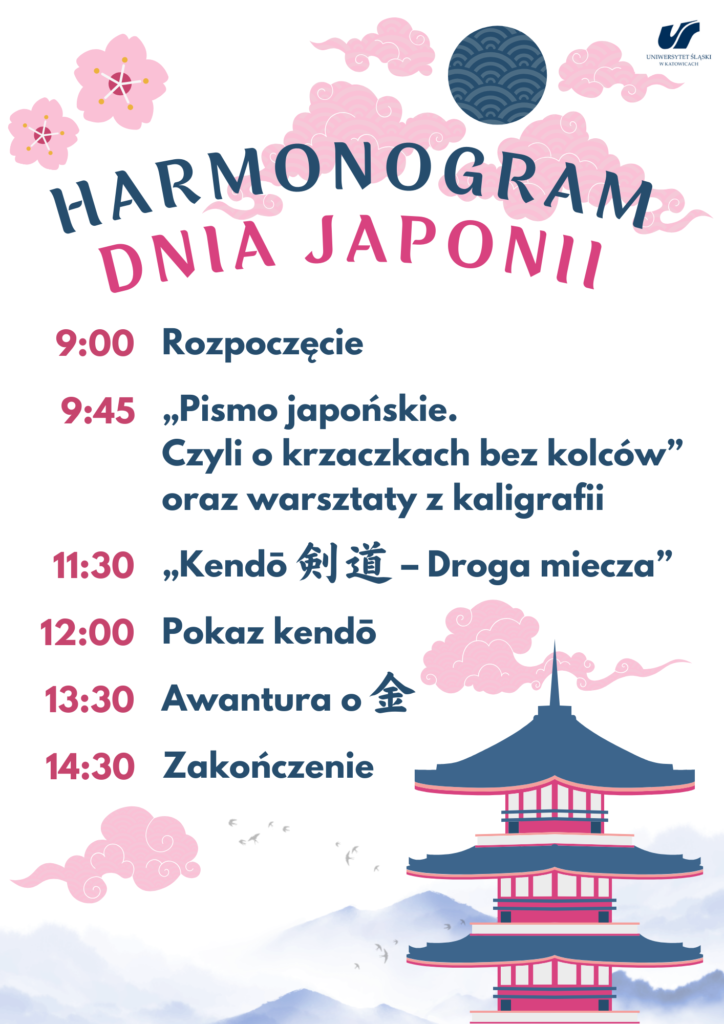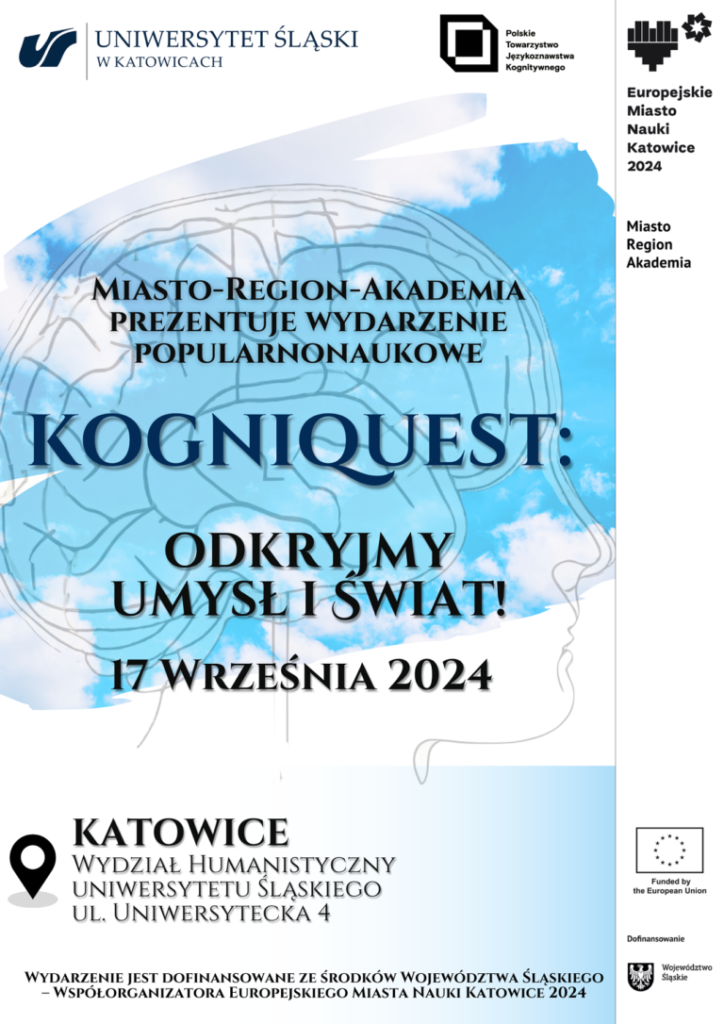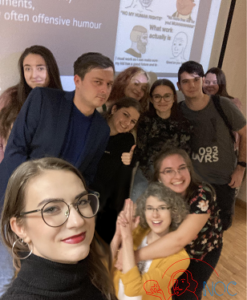Kognitywistyka to szeroka i interdyscyplinarna dziedzina nauki, która bada ważne w naszym codziennym życiu procesy poznawcze takie jak świadomość, pamięć, rozumienie, wnioskowanie, jak również dostarcza nam wielu informacji na temat naszych zdolności językowych, sposobów rozwiązywania problemów, inteligencji, percepcji czy komunikacji.
Chcielibyśmy przybliżyć te fascynujące zagadnienia poprzez serię warsztatów i spotkań przygotowanych przez członków Polskiego Towarzystwa Językoznawstwa Kognitywnego oraz trzech kół naukowych działających na Uniwersytecie Śląskim w Katowicach, przy wsparciu Europejskiego Miasta Nauki Katowice 2024.
W związku z tym pragniemy zaprosić Państwa na wydarzenie popularnonaukowe Kogniquest: odkryjmy umysł i świat, które odbędzie się 17 września na Wydziale Humanistycznym Uniwersytetu Śląskiego w Katowicach, mieszczącym się przy ulicy Uniwersyteckiej 4 w Katowicach.
Dla nauczycieli oraz wszystkich zainteresowanych nauczaniem Koło Naukowe PPiW „Paidagogos” przygotuje Escape room „W świecie dziecka” — warsztat skierowany do nauczycieli i wychowawców otwartych na poznawanie nowych metod dydaktycznych. W kilkuosobowych grupach uczestnicy będą mogli doświadczyć „na własnej skórze” na czym opiera się metoda escape roomu i rozwiązywać różne zagadki. Nie zabraknie emocji oraz informacji dotyczących aspektów wychowawczych i dydaktycznych.
Dla uczniów od czwartej do szóstej klasy szkoły podstawowej Koło Naukowe PPiW „Paidagogos” przygotuje warsztat o emocjach. Uczniowie zostaną przeniesieni do animacji pt. „W głowie się nie mieści”, w której poznawać będą różnych bohaterów. W trakcie tej przygody nauczą się rozpoznawania i nazywania własnych emocji oraz sposobów radzenia sobie z trudnymi emocjami. Z kolei Koło Naukowe Francofil(le)s zaprasza uczniów w świat różnorodnych języków w ramach warsztatu „W krainie dźwięków języków europejskich”. Jeśli więc chcecie dowiedzieć się, jak pieje kogut po francusku lub jak muczy krowa po hiszpańsku — zapraszamy!
Dla uczniów szkół ponadpodstawowych, Doktoranckie Koło Naukowe NEOlinguists organizuje dwa spotkania. Pierwsze z nich pt. “MEM-masters” ma na celu objaśnienie gier słownych i humoru w popularnych memach oraz mechanizmów, jakimi kierujemy się, tworząc te “śmieszne obrazki”. Drugie spotkanie porusza problematykę tłumaczenia pisemnego oraz audiowizualnego, pułapek z nimi związanych poprzez udzielenie odpowiedzi na pytania takie jak np. Co poszło nie tak podczas tworzenia napisów do filmu? lub Czemu ten bohater ma inne imię w wersji angielskiej? Ostatnie, trzecie spotkanie tego dnia, organizowane przez Francofil(le)s przybliży dźwięki, którymi posługują się osoby na różnych krańcach świata. Odkryjcie języki, o których być może nigdy dotąd nie słyszeliście (np. gwizdane czy mlaskowe)!
W trakcie tego szczególnego dnia uczestnicy będą mogli również wziąć udział w dodatkowych wydarzeniach, otwartych dla wszystkich uczestników, takich jak konkurs skojarzeń w języku angielskim Connect it! czy Kwadransach z językiem, w trakcie których będzie można poznać wiele ciekawostek na temat różnych języków. Całe wydarzenie ma na celu przybliżenie tego, czym zajmuje się kognitywistyka oraz promowanie tej dziedziny nauki przez zabawę.
Program oraz szczegóły dotyczące wydarzenia znajdziecie na jego stronie.







